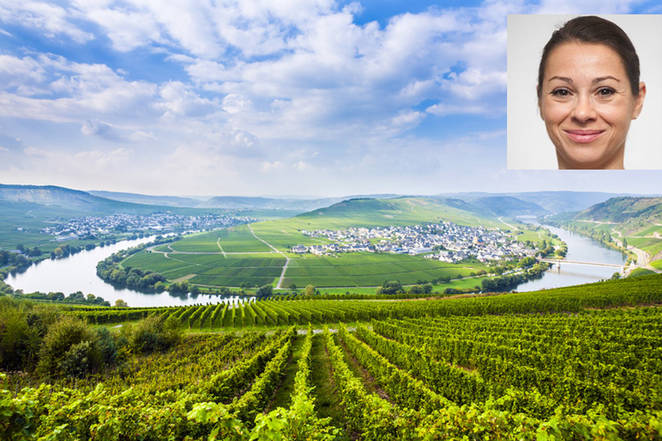Sophie Clanchet is not like every French lawyer: she works in a region of France that, due to its fascinating historical heritage, has its own legal system, making it an exceptional place for lawyers.
A lot of lawyers around the world deal frequently with France and become familiar with its legal framework, but did you know that a small part of the country has its own system? Alsace-Lorraine, the narrow strip of territory bordering Germany, has retained a lot peculiarities, both in its law and in its procedures, that makes it puzzling for lawyers when they first work on a case located there – even French lawyers from the rest of the country!
Sophie Clanchet (EJ France) works in Metz, one of the major cities in this area. She deals daily with Alsace-Moselle's special tricks and has even written articles about them for the website of her lawfirm. 'One of the most important features', she says, 'is the Concordat, which means that contrary to the rest of France, Alsace-Moselle does not have a full separation of church and state. Another big one is the possibility for a private person to declare bankrupcy.'
So why is Alsace-Moselle different from the rest of France? The territory was annexed by Germany in 1871 and did not become French again until after WWI, in 1918. During that time, legal reforms happening in France did not happen in Alsace-Lorraine, instead they were influenced by German innovations. 'When France recovered the region in 1918,' explains Sophie, 'it was intended to be legally ‘Frenchified’, but there was an eight-year transitory period. And when 1924 came a lot of things were validated by law. A lot of things were kept because in fact they worked very well. This is especially true in terms of procedures: the possibility to immediately appeal a judgment concerning inheritance, for example. The most popular peculiarity of Alsace-Moselle is the existence of a professional judge for commercial law. The rest of the country has commercial courts that are often criticised and there have been debates about reforming them, possibly by expanding the Alsace-Moselle system of commercial judges to the entire country.' Recently, the much praised Alsatian system of private bankrupcy was extended to the whole nation.
Alsace-Moselle was claimed again by Nazi Germany after the invasion of France in 1940. Up to 1944, its young men were forcefully conscripted to the Wehrmacht. They were latter dubbed malgré-nous, French for against our will. After World War II, the special status of Alsace-Moselle was again reiterated in French law. 'We often call the rest of the country old France,' says Sophie, 'or inner France. A lot of our specificities aged very well.'
Sophie often has to explain such specificities to other lawyers. 'German lawyers recognise a lot of their own system so it is not too difficult for them,” she says. “Other French lawyers can be very confused, one from Southern France asked me for details on a succession case and he found it so different from what he is used to, that he ended up simply handing it over to me! But actually, our specificities are not that hard to understand. Sometimes lawyers ask me in advance, assuming there will be something different because it's Alsace-Moselle, even in cases where our system is not different!'


